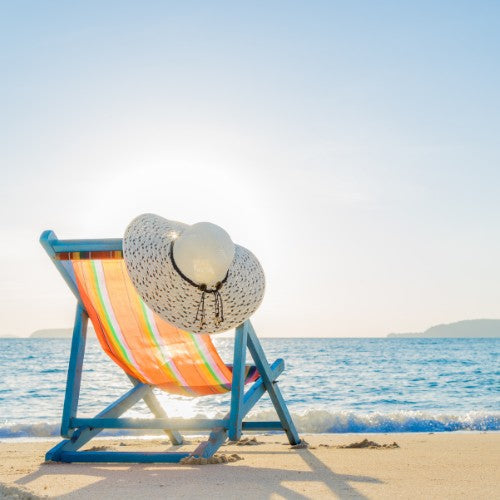
Holidays: the aquarium and the pool without us
F. MattierShare
It's summer and many of us are going on vacation.
But if we have an aquarium, a pond, a poubellarium, or micro-ponds, it's impossible not to ask the question: what will happen to them in our absence?

The answer to the question is very different depending on whether we are dealing with an aquarium (natural or tech) or an outdoor water point.
The easiest is the basin.
If their level is sufficient before leaving, you have nothing to do. The fish will eat less, but it is the season when insects lay eggs in large numbers: mosquitoes, dragonflies, diving beetles, horseflies, some hoverflies, Chaoborus divers, Chironomids, Ilybius, whirligig beetles, etc. They will manage without you to feast on incredibly varied and nutritious critters, just like in nature. A pond is a living place, but be careful! The density of fish is always much higher than what nature has planned. So know that they will be hungry anyway, but it won't be dramatic for them.

On the other hand, if your pond is very small (less than 500 liters) and very populated, consider raising the water level to the maximum before your departure and possibly shading the surface. In case of a heatwave, oxygen could become dangerously scarce.

For poubellariums and micro-ponds, there is a difference. Unless they are partially or totally buried, the walls are exposed to the sun. Heating by the walls can be very significant, especially if the container is black, if it is exposed to the sun, or if its volume is small.
In periods of extreme heat, the temperature could rise dangerously quickly. If part of it is buried, the bottom can remain cool (like the bottom of a pool). Otherwise, consider placing a cover on one side to protect the wall from direct rays. Why not use the lid usually sold with the bin? Fixing it vertically against the wall may be enough to create a heatwave shield...

"If your water source is without fish, it is still sensitive to heat. Each creature has its own sensitivity to temperature and therefore to the scarcity of oxygen. The most resilient are ostracods. I have observed some that continued to reproduce in greenhouse water at over... 55 degrees!"
The question of the water level is also vital. In summer, evaporation is much greater than precipitation. A storm of 15 to 20 mm (therefore quite abundant) will only raise the water level by 1.5 to 2 cm. In contrast, evaporation occurs continuously, day and night.
It is therefore essential to "check the levels" before leaving. The risk of overflow is negligible, while the risk of drying out is very serious.
On the aquarium side, the only problem is the food. Less exposed to temperature variations than outdoor water sources (especially in a house with closed shutters), with no risk of drying out either.

The dirtier your aquarium is, the more natural it is, and the more your fish will find something to nibble on.
Microfauna is never completely absent. Nothing prevents you from adding a few critters before you leave. The daphnia will be consumed very quickly, but the ostracods can last longer (generally less appetizing) and the water lice will survive long enough to reproduce. The Blackworm that may have reached the substrate and hidden there will also have their chance.
For the rest, and especially if your aquarium is not dependent on technology (natural or low-tech), there is very little to worry about.

Finally, fishless aquariums will thrive on their own without any problems, and you will discover surprises upon your return: new critters, unexpected growth of this or that plant, etc.

In short: if you had the wisdom to let nature take a good part of the control of your systems, they will do even better without you!
2 comments
Il est vrai que je me place toujours dans le cadre de l’aquariophilie naturelle et low-tech. C’est ce qui permet justement de ne pas dépendre du bon fonctionnement de ces appareils !
Il est dommage que vous n’ayez pas un peu plus développé par exemple : suivant absence de X jours , quelles nourriture donner aux poissons en aquarium , Nettoyer vos filtres avant de partir , vérifiez vos appareillages ….
A le grand mérite d’avoir été rédigé pour que je puisse le “critiquer” . MERCI